Burnout is a hot topic these days, regardless of industry or in spite of the so-called pandemic reset. For myself, when the thought of writing a new script made my wrists go limp some time earlier this year, I needed to find a way to refill the well.
So I spoke with a handful of theatre artists who also work in TV and film about how they stay inspired while working on multiple projects with varying stakeholders. This article is not about the financial allure of Hollywood, the harsh economic realities of being a theatre artist, or any real or imagined “brain drain” (important issues, certainly, but often written about).
This article, instead, is about staying connected to your vision in the face of a multiplicity of demands, opinions, and distractions, and doing so as healthfully as possible. With the Mayo Clinic recently advising Americans to take mental health breaks, whether they last a day, an hour, or a month—consider this a mental health minute.
Embrace Yourself

“Before I was writing, I was acting,” said Steve Harper, a playwright, producer, and writer for shows such as Stargirl and God Friended Me. “I spent years in acting class searching for scenes. We did the classics: Chekhov, Williams, Miller. Great material, but no people of color. No roles that I was likely to be cast in.”
So Harper began writing a collection of short plays full of diverse characters and a wide range of subjects: race, politics, sexuality, religion. Several were produced around the country, including on Broadway as part of a 24-Hour Plays event. When the pandemic hit, Harper decided to publish the collection with the title A Few Short Plays to Save the World. His goal is to have them be read and studied by students, as well as produced by theatres, all over the world. “Theatre has always been revolutionary,” said Harper, who envisioned this anthology to also be a source of inspiration for others to create their own work.
His advice, which he learned after struggling for years for a place to take his work, is to “not wait for the culture at large or some institutional space to embrace them.”
Harper is not alone. Each of the artists I spoke with has the reins of their career in their own hands.
Don’t Compromise
A writer with a similarly strong and uncompromising vision is Larissa FastHorse, whose satirical comedy The Thanksgiving Play will debut on Broadway in the spring of 2023, making her the first female Native American playwright ever produced on the Great White Way.
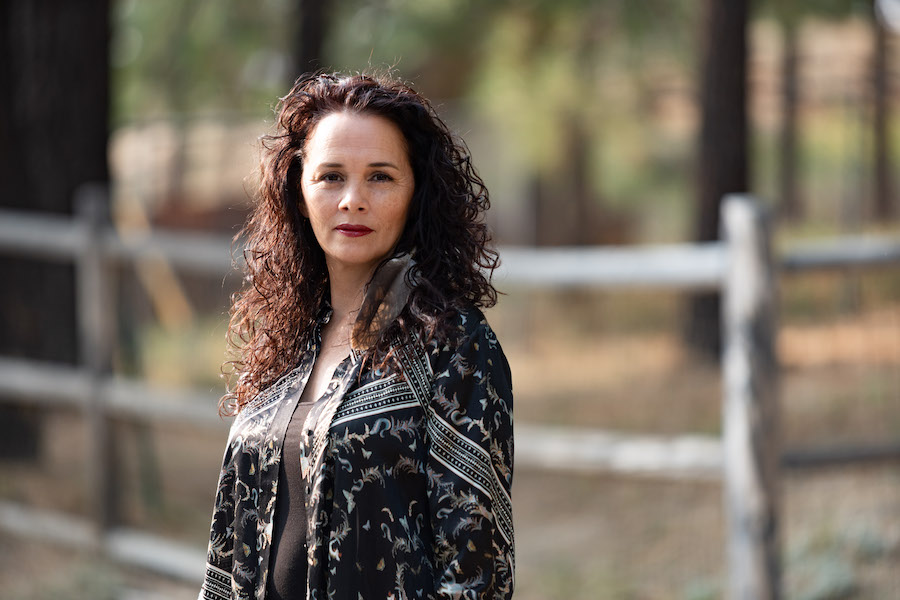
FastHorse’s career did not begin in the theatre but in TV and film. She enjoyed early success with the sale of two original pilots, but she was quickly disappointed when the integrity of the Indigenous characters she’d written was compromised. That experience transformed her perspective. From then on, her work would be about “changing a field as opposed to just creating a piece,” she said.
In the theatre, she was able to engage communities, increase Indigenous representation, and slowly but surely help to change the way that storytelling culture views Indigenous stories and art. Would the same playbook work when she returned to Hollywood? When she came back to film and TV, she said she came with a few ground rules. “I’m a creator only,” she said. “I don’t work on other people’s work. I don’t write about murdered Native women. I don’t write about raped Native women. Period.”
We all have this power, FastHorse insisted. “If I can’t do things the way I want, or tell the stories I want to tell, then I don’t need to do it.” Her full slate of projects—including Fake it Until You Make it in Center Theatre Group’s 2023 season, as well as projects with Apple TV, Taylor Made Productions, Echo Lake, and NBC—shows that this insistence hasn’t slowed her down.
Take It on the Road

Shakina Nayfack has always maintained her creative agency, because she had no other choice.
“No one else was producing me,” said the multi-hyphenate artist, who starred on the series Difficult People and is currently a writer for the rebooted Quantum Leap. She is also the founding artistic director of the Musical Theater Factory (MTF) in New York City, which helped develop Michael R. Jackson’s Pulitzer- and Tony-winning musical, A Strange Loop.
Nayfack created MTF to provide the support she felt was missing in the musical theatre development cycle in New York City. “I have been in rooms that have felt unsafe or unsupportive,” she said. “During those times, I rested in the knowledge that I would create spaces far superior to those. I was learning what I didn’t want to do.”
Musical Theater Factory exploded onto the scene at the same time that Shakina was crowdfunding her gender confirmation surgery. “MTF was this handy acronym that also stands for ‘male to female’ in medical lingo,” Nayfack said. “It was a handy way to make sense of my life at the moment.”
Additionally, Shakina was developing her autobiographical glam-rock odyssey, Manifest Pussy, about making her gender transition at the same time that North Carolina passed the restrictive “bathroom” law, HB2. “It was the first statewide discriminatory piece of trans legislation,” Nayfack recalled. While some artists boycotted, and touring shows canceled runs in the state, Nayfack took a different approach.
“Theatre teaches us how to live with each other,” she said. “We can’t take that away.” So she took her show to North Carolina, staying on people’s couches, spending time with trans activists, even doing an interview on a conservative radio show. “I just tried to be a cheerleader for the people on the ground who were doing the hard work of combating this hateful legislation,” she said.
When it comes to working in TV, she has this to say: “If you’re in a good writer’s room, you’re there because of your voice. You might be serving someone else’s vision, but you’re bringing your ingredients to the stew. That’s the whole point.”
Tune Your Instrument
“Everyone is looking for the story only you can tell,” said playwright, screenwriter, and showrunner Molly Smith Metzler, who recently signed a multi-year overall deal with Netflix on the heels of her award-winning limited series Maid. “We all have this instrument in our chest,” she explained. “It tells us what our taste is, what our voice is, and how we feel about something. Don’t worry about anything except your instrument.”
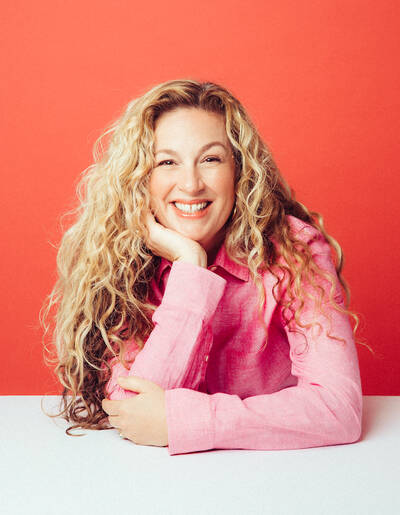
Metzler, who loves to hire and work with playwrights on her TV projects, knows something about the importance of listening to your instrument in navigating a career. She said it was that instrument that guided her to adapt Stephanie Land’s searing memoir Maid for Netflix. “It’s not a TV show in the conventional sense,” Metzler said. “But there was something in that instrument in my chest that said, This is the right thing. This is something my voice could be additive for.”
Even 10 years ago, she might not have had or trusted that gut reaction, but now she said, “I let it navigate my whole life.” She attributes her confidence to motherhood and to a toughness born of experience. Fresh out of school, Metzler landed a star-studded production at a major Off-Broadway theatre, “the New York City production that people dream of having,” as she put it. The dream turned into a nightmare when the reviews started rolling in. “I got eviscerated,” she said. “I think a lot of playwrights get that first terrible review and don’t write again.”
But with the support of her husband, also a writer, she didn’t give up. “There’s a toughness that comes from surviving some of that stuff, like getting fired for the first time,” Metzler explained. “Experience is what makes you hear your instrument better.”
Trust Your Gut
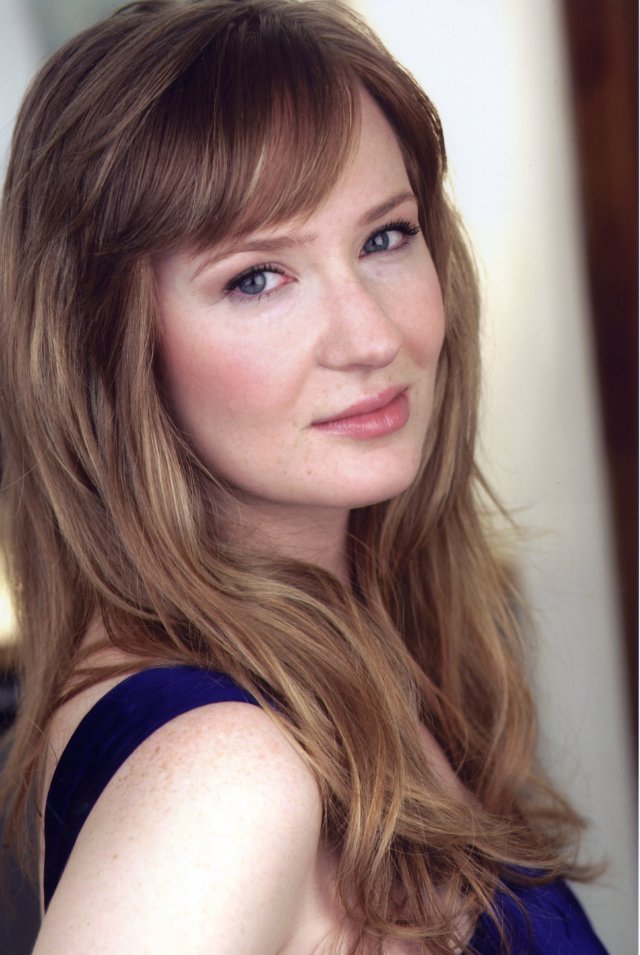
Bad reviews or firings are not, unfortunately, uncommon. Nor is finding yourself in a toxic environment. It can be heartbreaking, but also pivotal—even alchemical, turning lead into gold. But that takes intense heat and pressure, and managing that transition is the trick. For many, it comes down to trusting your intuition and working with the right people.
“I work with a team that understands who I am and supports me being me, as opposed to fitting myself into a box that is uncomfortable,” said the writer and actress Halley Feiffer, who recently wrote on Apple TV+’s Roar and received a 2020 Drama Desk nom for her play Moscow Moscow Moscow Moscow Moscow Moscow.
It wasn’t always this way. Early in her acting career, Feiffer said, she turned down a “fancy” movie callback so that she could write, produce, and star in her own film. Her representatives weren’t happy, to put it mildly, but it was an awakening of sorts. “I thought the agent relationship was a power imbalance, but it wasn’t. They work for me.”
This shift in thinking empowered her to rely on her gut and seek out people and projects that would be a good fit for her interests and vision, whether that’s working on a new play commission for MTC or developing projects with Netflix and Amazon.
Tap the Power of Community
“Opening my mouth 60 years ago would have gotten me killed,” said D’Lo, a queer transgender actor, writer, and comic of Tamil-Sri Lankan descent whose solo show, To T, or Not to T? A Comedic Trans Journey Through (T)estosterone and Masculinity was recently part of Center Theatre Group’s Block Party. An art-based student activist in his early college days at UCLA, D’Lo now relies on a strong sense of community.
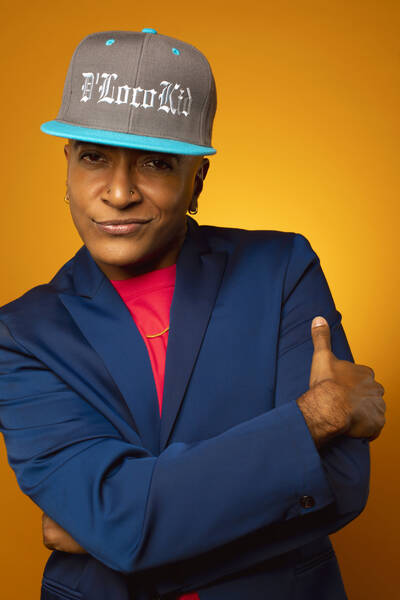
“I had mentors who were feminist or communist and would plug me into things as a young poet,” he recalled. D’Lo started booking tours locally and then nationally after moving to New York; he spent the next 15 years on the road. “I was always connected to community-based theatres,” he said.
Moving back to L.A. to work in TV and film, D’Lo has had his fair share of challenges and blessings. “For queer or trans people coming to the industry, you come across these roles and you’re like, ‘What is this?’”
In the meantime, D’Lo focuses his attention on the projects that move him. “I’ve been involved in some amazing queer-run and queer-only TV and film projects,” he notes, citing the Lana and Lilly Wachowski-created TV series Sense8 (with J. Michael Straczynski), and more recently Fawzia Mirza’s comedy short Auntie.
These often stand in contrast to the actor breakdowns that show up in his email box, and there’s a good reason for that, he said. “Every single project that I have done, written, produced, or acted in is in collaboration with incredible theatre artists who are also dipping their toes into this far-reaching medium of TV and film.”
Find Partners
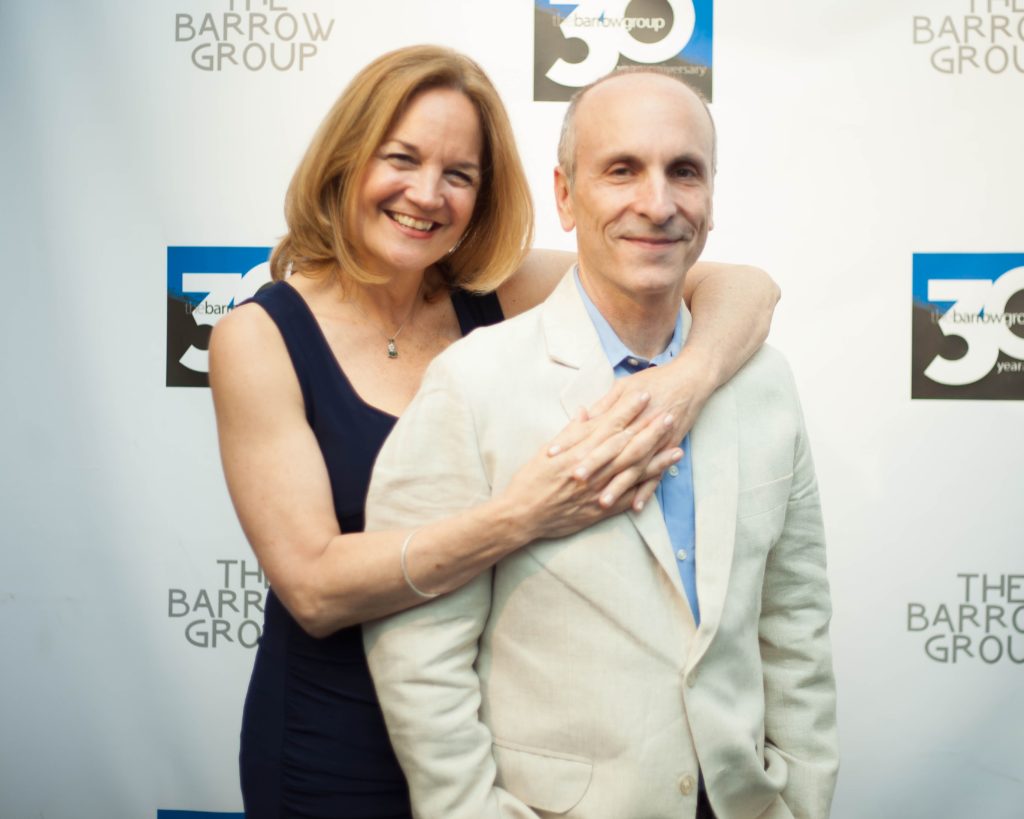
Community and collaboration were common themes in these conversations. As actor, director, and composer Seth Barrish put it, “When you’re working with people who get you and what you do, and you get them and what they do, it keeps you in touch with your own artistic vision and goals. Plus, it’s just a lot more fun and productive.”
Barrish started out in Los Angeles as an actor. “I couldn’t get rejected—you have to get an audition to get rejected,” he said with a laugh. That didn’t stop him. He moved to New York and focused on building the Barrow Group, the award-winning Off-Broadway theatre company and acting school which he runs with his busy and talented wife, Lee Brock. His advice? “Partner with good people.”
“I’m not good at doing things by myself,” he continued. “I seem to need partners. It allows me to get things done.” Now, when he’s cast in TV shows such as Netflix’s The Watcher or Showtime’s Billions, he always has a theatre home and community to come back to.
Stay In It (Also Step Away)
For some theatre artists who move into TV or film, screen work is just another page in their creative portfolio. But for Liesl Tommy, an acclaimed stage director who has added TV and film credits to her résumé, it was more than that.
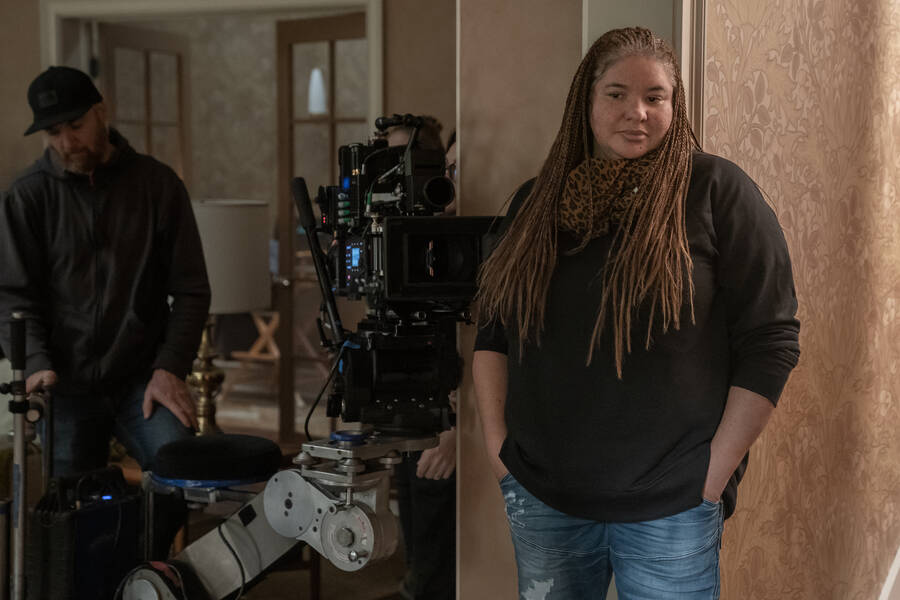
“It was always my dream to direct a film,” she said. But when she moved to the U.S. from South Africa at age 15, she at first found a common language with U.S. artists in theatre. “Theatre was just a part of my cells,” she said.
While a transition to work on-screen is a common one for playwrights and actors, it’s less common for stage directors. “There were a very small handful of theatre directors directing television,” said Tommy of her entrance into the field. “I certainly didn’t know any women, particularly women of color.”
Tommy was invited to direct her first episode on the critically acclaimed and popular show Queen Sugar by creator/showrunner Ava DuVernay, who had seen Eclipsed on Broadway and knew Tommy through the Sundance Theatre Program. Indeed, Tommy noted that her first few TV directing jobs had female showrunners. It wasn’t long before she was asked to pitch for, and eventually direct, the Aretha Franklin biopic Respect, for which she hired a lot of theatre people. “It was a balance of the best of Hollywood and the best of Broadway,” Tommy said.
After wrapping the film and press tour, Tommy took a three-month hiatus in Thailand to decompress and reassess. “I was just so exhausted,” she said. “I also understood that my needs had changed when it came to producing partners.”
She has since formed her own production company, Crocodile Eyes, with producing partner and fellow theatre veteran Jennifer Mudge. “I’ve always been a community builder,” said Tommy. “So I’ll continue to build my community and we’ll make things together.”
Make Time for the Miraculous
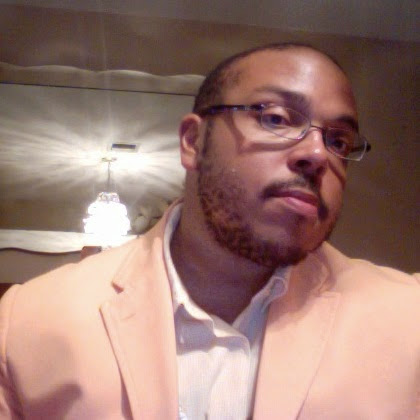
“It’s very easy for writers who move out to L.A. to chase the mirage of other people’s projects,” said playwright, reporter, and TV writer Aurin Squire. “So you need a mixture of what you do for money and what you do for yourself.”
It was midnight in Serbia, but Squire was not exactly on vacation. Wherever he is, his days are made up of Zooming into a writer’s room, finishing a play, and squeezing in a little sight-seeing. All of the writers I spoke to have ways to protect their work, their vision, and their energy, whether by decompressing on a distant beach, spending time with family, or a daily spiritual practice. When talking about sabbaticals, Squire mentions a sabbatical that anyone can fit into their schedule. He calls it the Circle.
The Circle is a practice by which you set aside one day a week (or even just a few hours) to dedicate yourself to whatever you’re going to do. It can be time to think, walk, cook, write, and read. The outcome?
“Miraculous things begin to happen,” said Squire. “You have more energy. You end up being more productive, and that time will yield so many creative ideas throughout the rest of the week.”
But Squire emphasizes the importance of community as well, citing a historical precedent.
“Ingmar Bergman had an ensemble. He would do a play for one season and then he would take the ensemble and do a movie.” In any medium, Squire concluded, it’s about staying focused on the integrity of your craft.
The takeaway of these many stories: Retaining agency over our very busy and complex careers and lives is not only good for our work, it’s good for our mental health, and, I’d venture to add, good for the world. This agency depends on a number of things—creativity, courage, conviction, community, and collaboration—but if I had to highlight the most important of these elements, they would be the last two, i.e., the ones that put the focus on other people. One of the worst things about burnout is that can make us feel alone. But as Sondheim once wisely put it: No one is alone.
Micheline Auger (she/her) is a playwright, screenwriter, journalist, producer, and film director.


